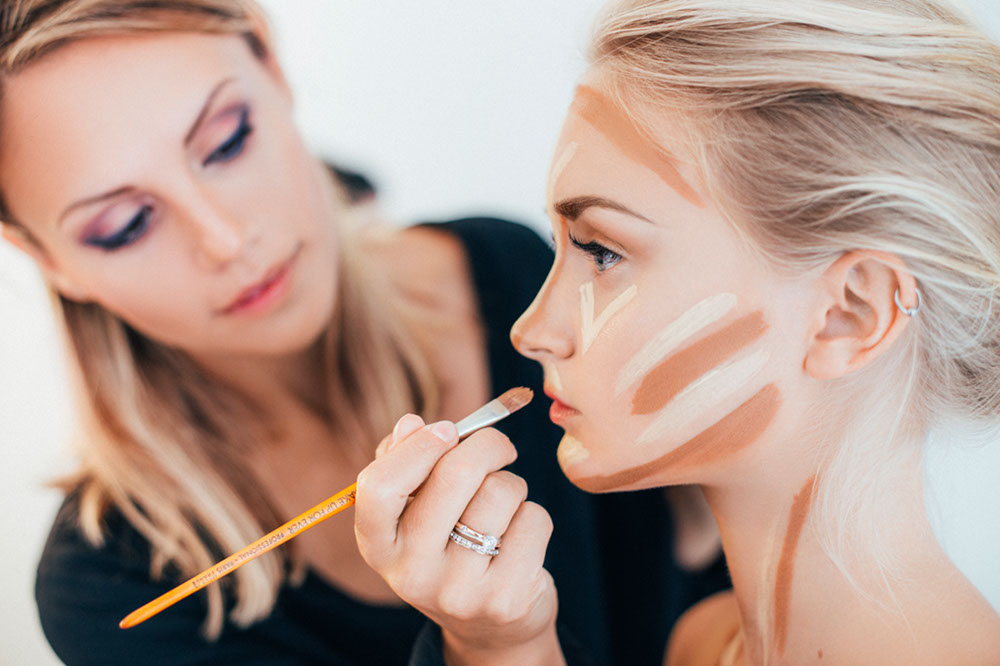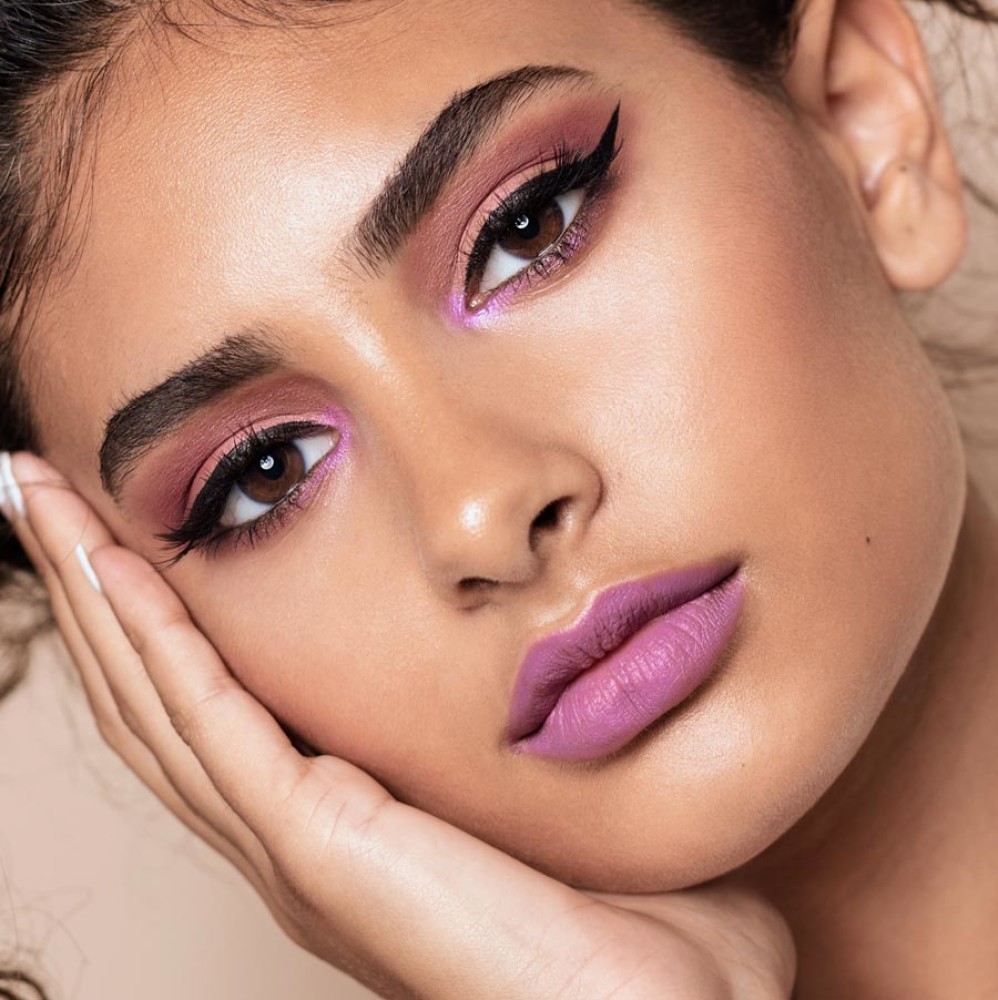The Art Of Transformation: Unveiling The World Of Professional Makeup Training Courses
The Art of Transformation: Unveiling the World of Professional Makeup Training Courses
Related Articles: The Art of Transformation: Unveiling the World of Professional Makeup Training Courses
Introduction
In this auspicious occasion, we are delighted to delve into the intriguing topic related to The Art of Transformation: Unveiling the World of Professional Makeup Training Courses. Let’s weave interesting information and offer fresh perspectives to the readers.
Table of Content
The Art of Transformation: Unveiling the World of Professional Makeup Training Courses

The world of makeup is a captivating blend of artistry, technical skill, and creativity. It holds the power to enhance natural beauty, transform appearances for special occasions, and even tell stories through visual mediums. For those seeking to master this craft and embark on a rewarding career path, professional makeup training courses offer a comprehensive and structured route to achieving mastery.
Understanding the Landscape: Types of Professional Makeup Training Courses
Professional makeup training courses come in various forms, each catering to specific career aspirations and skill levels. A comprehensive overview of the most prevalent types includes:
1. Basic Makeup Courses: These foundational courses provide an introduction to the fundamentals of makeup application. Students learn essential techniques like skin preparation, foundation application, eye shadow blending, and contouring. They gain familiarity with basic makeup tools and products, establishing a solid base for further development.
2. Advanced Makeup Courses: Building upon the foundation of basic training, advanced courses delve deeper into specialized techniques and artistry. They explore high-fashion makeup, special effects makeup, airbrushing, and advanced prosthetics. These courses cater to aspiring professionals seeking to refine their skills and expand their repertoire.
3. Specialized Makeup Courses: Catering to specific niches within the makeup industry, specialized courses offer in-depth training in areas like bridal makeup, beauty makeup, theatrical makeup, or film and television makeup. These courses equip students with the specialized knowledge and skills required to excel in their chosen field.
4. Diploma and Certificate Programs: These comprehensive programs offer a structured curriculum that covers a wide range of makeup techniques and industry practices. They typically include hands-on training, workshops, and portfolio development, culminating in a recognized qualification. Diploma and certificate programs are ideal for individuals seeking to establish a strong foundation for a career in makeup artistry.
5. Online Makeup Courses: Offering flexibility and accessibility, online courses provide self-paced learning opportunities. Students can access video tutorials, interactive modules, and downloadable resources at their own convenience. While online courses provide a valuable introduction to makeup concepts, they often lack the hands-on experience and personalized feedback offered by traditional in-person programs.
Beyond Techniques: The Importance of Professional Makeup Training
Investing in professional makeup training offers numerous benefits beyond acquiring technical skills. These courses provide a platform for:
1. Developing a Strong Foundation: Professional training instills a deep understanding of skin types, color theory, and product knowledge, forming a solid base for creative expression and technical proficiency.
2. Mastering Essential Techniques: Courses provide structured instruction on essential techniques like skin preparation, foundation application, eye shadow blending, contouring, and highlighting, equipping students with the tools to achieve flawless and natural-looking results.
3. Cultivating Artistic Vision: Through workshops, demonstrations, and practical exercises, students develop their artistic vision, learning to interpret trends, create unique looks, and adapt techniques to individual needs.
4. Building a Professional Portfolio: Training programs often include portfolio development, allowing students to showcase their skills through professional photographs and video demonstrations, creating a valuable tool for showcasing their talents to potential clients and employers.
5. Gaining Industry Knowledge: Professional training courses go beyond technical skills, providing insights into industry standards, ethical practices, hygiene protocols, and business management, preparing students for the realities of a career in makeup artistry.
6. Networking Opportunities: Training programs often foster a collaborative learning environment, providing opportunities to connect with fellow students, instructors, and industry professionals, building valuable networks and opening doors to future collaborations and career opportunities.
7. Building Confidence and Credibility: Completing a professional makeup training course instills confidence in one’s abilities and provides a recognized qualification, enhancing credibility and marketability in the competitive makeup industry.
Navigating the Training Landscape: Choosing the Right Course
Selecting the right professional makeup training course requires careful consideration of individual goals, learning styles, and budget constraints. Here are key factors to consider:
1. Course Curriculum: Evaluate the course curriculum to ensure it aligns with your career aspirations. Look for courses that cover the specific techniques and skills relevant to your chosen field, whether it be bridal makeup, beauty makeup, or special effects makeup.
2. Instructor Expertise: Research the instructors’ qualifications and experience. Look for individuals with a proven track record in the industry, recognized certifications, and a passion for teaching.
3. Hands-on Training: Prioritize courses that offer substantial hands-on training. Practical experience is essential for developing technical proficiency and building confidence in your skills.
4. Portfolio Development: Inquire about portfolio development opportunities. Look for courses that provide guidance on creating professional photographs and video demonstrations to showcase your work.
5. Industry Connections: Consider the course’s connections to the industry. Look for programs that offer networking opportunities, guest lectures from industry professionals, and potential job placement assistance.
6. Cost and Duration: Evaluate the cost and duration of the course in relation to your budget and time constraints. Consider the return on investment and the potential career opportunities offered by the program.
7. Accreditation and Recognition: Check for course accreditation or recognition from reputable organizations. This ensures the program meets industry standards and provides a valuable qualification for your resume.
Frequently Asked Questions about Professional Makeup Training Courses
1. What are the prerequisites for enrolling in a professional makeup training course?
Most courses do not have strict prerequisites, but a genuine interest in makeup artistry and a willingness to learn are essential. Some programs may require a basic understanding of makeup techniques or a portfolio of previous work.
2. How long do professional makeup training courses typically last?
Course durations vary depending on the program’s scope and intensity. Basic courses can range from a few days to a few weeks, while advanced courses and diploma programs may extend over several months or even years.
3. What are the costs associated with professional makeup training courses?
Course fees vary depending on the program’s duration, intensity, and location. Basic courses tend to be more affordable, while advanced courses and diploma programs can be more expensive.
4. What are the career opportunities after completing a professional makeup training course?
Graduates of professional makeup training courses can pursue careers as freelance makeup artists, beauty counter representatives, makeup artists for film and television, special effects makeup artists, theatrical makeup artists, or educators.
5. Are there any scholarships or financial aid options available for professional makeup training courses?
Some schools or training providers may offer scholarships or financial aid options. It is advisable to inquire about these opportunities during the application process.
6. What are the essential skills required to succeed as a professional makeup artist?
Beyond technical skills, success in the makeup industry requires strong interpersonal skills, excellent communication, the ability to work under pressure, a keen eye for detail, creativity, and a passion for the art of makeup.
Tips for Success in Professional Makeup Training Courses
1. Be Prepared and Organized: Arrive at class with all necessary materials, including brushes, sponges, and palettes. Organize your makeup kit for easy access and efficient application.
2. Practice Regularly: Dedicate time outside of class to practice the techniques learned. Experiment with different products and looks to develop your skills and refine your style.
3. Ask Questions and Seek Feedback: Don’t hesitate to ask questions during class or seek feedback from your instructors. Active participation and seeking guidance are essential for growth.
4. Build Your Portfolio: Start building your portfolio early in the program. Take professional photographs of your work and document your progress.
5. Network with Fellow Students and Instructors: Build connections with your fellow students and instructors. These relationships can lead to future collaborations, job opportunities, and invaluable support.
6. Stay Updated on Industry Trends: Keep abreast of the latest trends in makeup, products, and techniques. Subscribe to industry publications, attend makeup shows, and follow leading makeup artists on social media.
7. Embrace Continuous Learning: The world of makeup is constantly evolving. Embrace continuous learning by attending workshops, taking advanced courses, and staying curious about new products and techniques.
Conclusion: A Journey of Transformation and Artistic Expression
Professional makeup training courses offer a unique pathway to transforming lives through the art of makeup. They provide a structured environment for developing technical skills, cultivating artistic vision, and building a professional portfolio. By investing in this training, individuals can unlock their creative potential, gain valuable knowledge and experience, and embark on a rewarding career in the dynamic world of makeup artistry.








Closure
Thus, we hope this article has provided valuable insights into The Art of Transformation: Unveiling the World of Professional Makeup Training Courses. We hope you find this article informative and beneficial. See you in our next article!
You may also like
Recent Posts
- The Art Of Persuasion: A Comprehensive Guide To Makeup Product Label Design
- A Comprehensive Look At Mary Kay Cosmetics: Reviews, Insights, And Considerations
- Affordable Skin Care: A Guide To Effective Products Under INR 100
- Navigating The World Of Mary Kay Discounted Products: A Comprehensive Guide
- The Power Of High-Resolution Images: A Guide To Acquiring The Best Visuals For Your Projects
- The Power Of Reviews: Navigating The World Of Makeup Products
- Swiss Beauty Makeup: A Comprehensive Guide To Quality And Affordability
- Embracing Natural Beauty: Makeup Tips And Techniques For Women Over 50
Leave a Reply